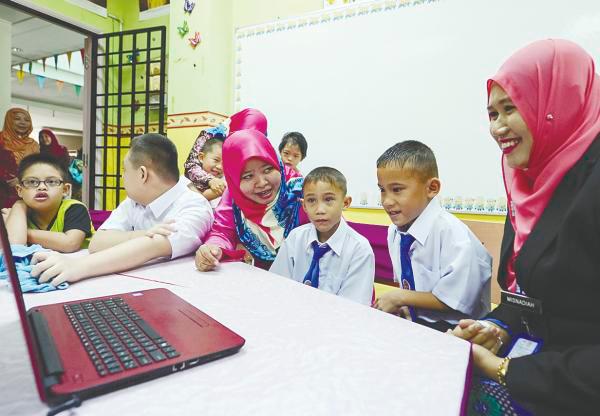IN today’s digital age, social media platforms play a vital role in the lives of our society. In Malaysia, media has become an important tool for us to acquire, create and disseminate knowledge and information.
With approximately 26.8 million users, or 78.5% of the population, Malaysians use social media to communicate, connect with others and participate in and shape their global community (Meltwater Social Media Statistics for Malaysia, 2023).
As people spend more time online, whether for work, school or social interaction, extra attention is needed to address issues such as disinformation, deep fakes, data privacy and learners’ digital well-being.
The Education Ministry has established guidelines regarding the appropriate use of social media platforms by teachers since 2017. Teachers have been advised to adhere to these guidelines diligently, and it has been emphasised that strict measures will be implemented should there be any breach.
The National Parent-Teacher Association has disclosed that they receive at least one complaint daily from parents regarding their children being featured as content on teachers’ social media.
Ensuring the security of learners’ data and privacy is crucial within the education sector. Education technology applications in the Southeast Asia region collect data on students, including location and learning activities.
The switch to online learning during Covid-19 exposed children’s data, yet less than one in three countries guarantee data privacy in education by law or policy (United Nations (UN) Educational, Scientific and Cultural Organisation Global Education Monitoring Report, 2023).
Given the profound importance of technology and social media tools in the field of education, teachers and parents must exhibit proficiency in their utilisation.
While social media can pose privacy risks, they can be managed with informed usage. There is also a huge upside where social media can be a great tool for modelling digital citizenship. Teachers can utilise social media to:
Share best teaching and learning practices. By discussing best practices and pedagogies, schools can join the online education community and make links with other schools.
Provide an authentic audience for their students’ work. Simple posts showing children’s work may prompt discussions at home and strengthen the link between learning at school and home.
Cultivate digital citizenship and values among students, and build more connected school communities. Many schools highlight their school values within their posts, and teachers look out for good examples to share.
According to the Common Sense Education (2022), there are three questions you should ask before posting anything from your classroom or school on social media:
1. Is there anything in this post that personally identifies me or my students?
2. Do I have explicit permission to post it? You usually need parental consent to share student information. Refer to the social media guidelines and privacy policy for your school to learn how information is protected, collected and used.
3. Is what I am posting furthering the learning of my students or other learners? Let parents know if students need to communicate with people outside your class (other classes, experts and authors).
Schools should obtain parental consent before posting photos of children on social media. Additionally, it is advisable to ask learners, while taking a photo, if they are comfortable with it being shared on the school’s social media platform. Full names should not be included alongside the photos. Some schools go the extra mile by blurring the faces of the children as an additional safeguarding measure.
Another primary concern for schools when establishing a social media presence is the potential for negative comments on the school’s page. The key lies in making thoughtful choices regarding the settings.
With the privacy settings feature, school teachers can decide who is allowed to follow them, send posts or comments, react to videos, take part in a duet and send them messages. They are also able to avoid undesirable content from being downloaded, create and edit a block list, set up a direct messaging button for parents to voice concerns and set up a code of conduct which teachers and parents must follow.
The UN Convention on the Rights of the Child released General Comment No. 25 in February 2021, highlighting the extension of children’s rights to the digital sphere. This landmark document underscores the importance of protecting children’s dignity and ensuring their equal rights in physical and digital environments.
Similarly in Malaysia, measures to address online risks include the Personal Data Protection Act 2010, in which the primary role is to oversee and regulate personal data processing, emphasising protection and prevention of misuse in commercial contexts.
Furthermore, raising awareness about the potential risks associated with data and privacy is essential. It is crucial to identify gaps in the existing practices of schools to ensure the digital safety of learners while empowering teachers and citizens, including parents, with media and information literacy competencies. This will make the teaching and learning process more resistant to external challenges and threats, and contribute to the achievement of Sustainable Development Goals.
The writer is a media and information literacy researcher, educator and trainer. She is currently pursuing her PhD at Universiti Sains Malaysia in Penang. Comments: letters@thesundaily.com









